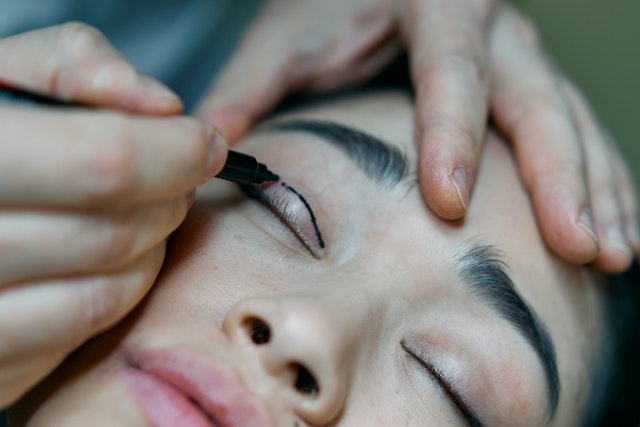If you’re considering having an eyelid lift, you should know that there are a few things you can do to prepare for the procedure. In addition to preparing for the recovery period, you should also consider avoiding medications that can increase bleeding.
Upper Eyelid Surgery
If you’re considering eyelid surgery, you must prepare for it. You should have a good night’s rest, avoid alcohol, and follow your doctor’s instructions. Depending on the procedure, you may be required to stay overnight in the recovery area. Bringing an overnight bag with you is important. It should include toiletries, soft tissues, and a comfortable dressing gown. The first week is critical for your recovery. Make sure you have ice packs and cool compresses on your eyes for at least 10 minutes each hour. These can help reduce swelling. Avoid wearing makeup, nail polish, or facial jewelry for a few weeks. Drink plenty of water. Taking antibiotics is also recommended.
If your surgeon suggests an eyelid lubricant, you should use it only for a short time after the procedure. This is because it can cause your vision to be blurred.
Preparing For The Recovery Period
Everyone must prepare for the recovery period before having an eyelid lift. Although an eyelid lift Toms River, NJ, is usually easy, it requires proper care and attention. You can speed up the recovery process by preparing ahead of time. After undergoing blepharoplasty, you should expect to experience some irritation, swelling and bruising. The swelling may not be fully resolved for up to a month, but the overall look of your eyes will start to improve. Some patients will also experience dry eyes and blurred vision. If this is the case, you will be prescribed an eyelid lubricant ointment. It is not advised that you wear contact lenses during this time.
Your doctor will provide you with a list of medications to avoid. Using non-steroidal anti-inflammatory drugs during recovery can increase the risk of bleeding. Taking vitamins and supplements can also help reduce the effects of bruising. You should also keep your eyes free from anything that can irritate them. Avoid stressful activities on the eyelids, including reading and watching television. For the first few days, try to keep your head elevated. This will help your eyes heal faster.
Avoiding Medications That Might Increase Bleeding
There are several factors to consider when considering an eyelid lift. From choosing the right doctor to avoiding the post-op pitfalls, there are plenty of things to do to ensure your surgery goes as smoothly as possible. While you may be tempted to tuck the surgeon away in the corner and let the machines do the rest, a bit of forethought can ensure that you return to your pre-op state in no time.
It’s no secret that you’ll take several pain relievers, antibiotics, and anti-inflammatory drugs for the next several weeks. However, these measures should be considered in tandem with other medical requirements. This is especially true if you have diabetes or a family history of diabetes. For the best chance of a speedy recovery, stick to a regimen of no more than four to five medications per day, and follow all your doctor’s directions. You may also want to reconsider your smoking habits. Smoking can delay wound healing and even lead to complications down the road.
Aftercare
Eyelid lift surgery is designed to restore your eyelids’ youth and appearance. It can remove excess skin, fat, or muscle. The surgery can also correct wrinkles, under-eye bags, or lines. After undergoing eyelid surgery, you should expect to feel drowsy and tired. You may also experience minor visual disturbances, such as blurry vision. Fortunately, most patients are fully recovered after 10 to 14 days. If you experience new symptoms, however, you should seek medical advice. You may have some mild pain and bruising during the first week after surgery. A nurse will place an IV in your arm and check your vitals. You should use ice packs on your eyes four or five times a day when you get home. Your doctor may prescribe a painkiller or eye ointment. These can control bleeding and reduce swelling.






